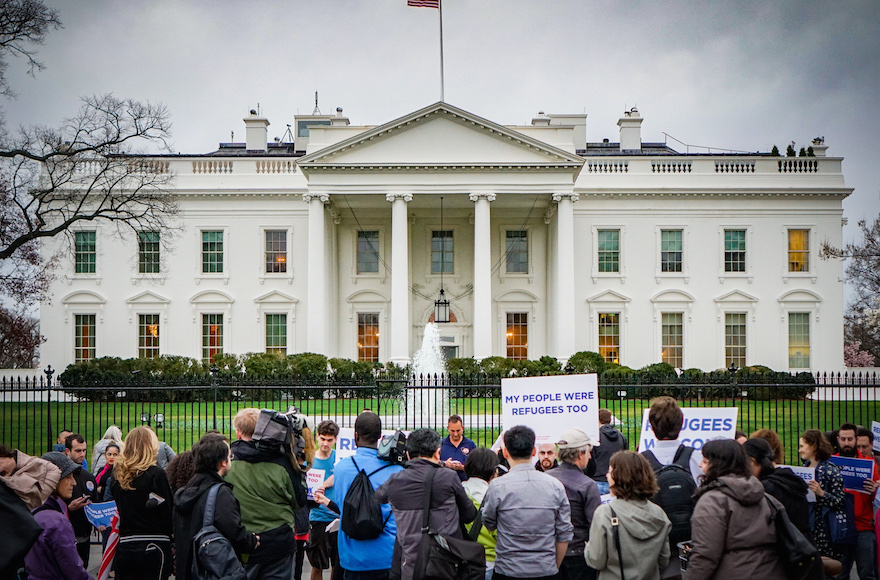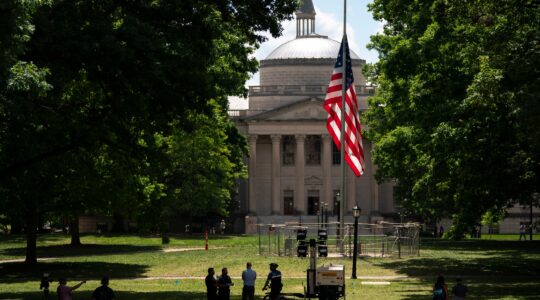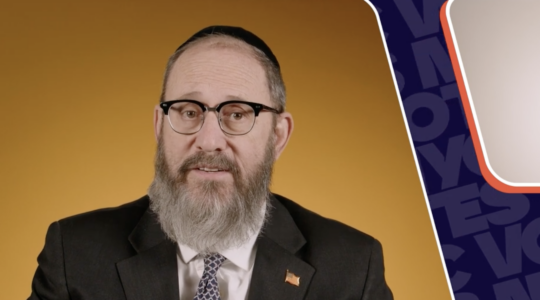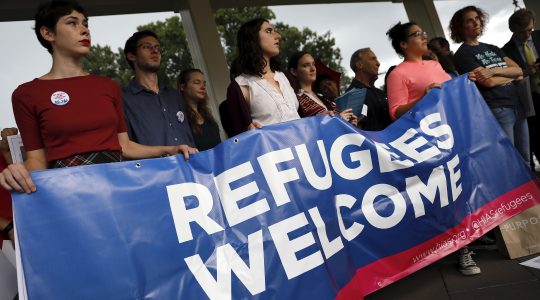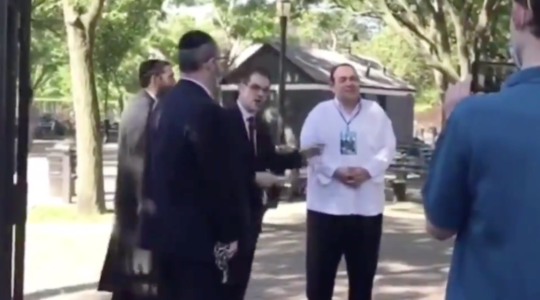(JTA) — A federal court in Seattle will hear an argument brought by Jewish groups challenging the latest Trump administration ban on refugees.
One of the two challenges being heard, Jewish Family Service v. Trump, has been brought by HIAS, the Jewish immigration advocacy group, on behalf of its partners, Jewish Family Service of Seattle and Jewish Family Services of Silicon Valley. The second case is ACLU of WA v. Trump.
The cases will be heard Thursday morning in the U.S. District Court in the Washington city.
The new set of restrictions on refugees include a minimum 90-day suspension of admission of refugees from 11 countries, nine of which are predominantly Muslim, and a suspension of the so-called follow-to-join process, which reunites family members with refugees already in the United States.
The groups are asking the court to grant a preliminary injunction to halt the implementation of such restrictions. They will argue that there is no evidence that refugee resettlement poses a threat to the United States, while the ban directly targets Muslims.
Jewish Family Service v. Trump also is brought by the International Refugee Assistance Project, the National Immigration Law Center and other individual plaintiffs.
“The global refugee crisis has reached record high proportions, yet the Trump administration has set a record low ceiling for refugees that may be resettled to the United States,” HIAS President Mark Hetfield said in a statement announcing the suit.
HIAS is one of nine national refugee resettlement groups and helps find homes for thousands of refugees per year. That effort will be reduced with the United States admitting no more than 45,000 refugees in the 2018 fiscal year that began in September.
Some 53,000 refugees were resettled in the 2017 fiscal year — President Barack Obama had set a cap of 110,000 — in part because of President Donald Trump’s executive orders banning refugees, according to CNN.
JTA has documented Jewish history in real-time for over a century. Keep our journalism strong by joining us in supporting independent, award-winning reporting.
